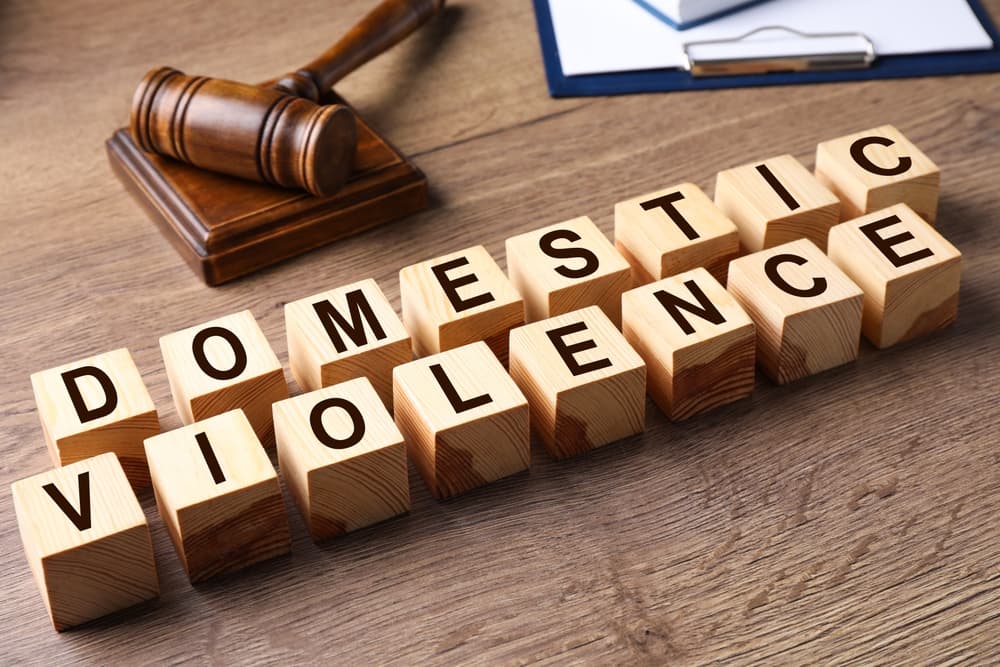An accusation of domestic violence in Fort Worth sets a fast-moving legal process into motion. It frequently begins with an Emergency Protective Order that removes you from your home and prevents you from seeing your family, sometimes within hours of an arrest.
It is completely normal to feel scared and uncertain. Remember: a charge is based on an allegation. A conviction, however, requires the prosecution to prove its case against you beyond a reasonable doubt. There is a vast difference between the two.
The potential consequences of a conviction are serious, involving jail time, significant fines, and lasting impacts on your family, career, and constitutional rights.
If you are facing a domestic violence allegation and need to know what to do next, call Fulgham Hampton Criminal Defense Attorneys at (817) 877-3030 for a confidential consultation.
Key Takeaways for Fort Worth Domestic Violence Charges
- An arrest does not mean a conviction. The state must prove its case beyond a reasonable doubt, and many defenses exist to challenge the allegations.
- Emergency Protective Orders (EPOs) have immediate and serious consequences. You will likely be removed from your home and barred from contacting the alleged victim, and any violation is a new crime.
- A conviction carries lifetime consequences beyond jail or fines. This includes a permanent federal ban on owning firearms, negative impacts on child custody, and damage to professional licenses.
What a Domestic Violence Allegation Really Means in Tarrant County
What Does "Family Violence" Mean Under Texas Law?

The term "domestic violence" is commonly used, but in Texas, the law refers to it as “family violence.” According to the Texas Family Code, family violence is an act against a family or household member that involves physical harm, bodily injury, assault, or a threat that reasonably places that person in fear of any of those things.
This definition is broad. It means the accusation might not stem from a physical fight. A threat made in the heat of an argument could be interpreted by law enforcement as family violence. However, the definition has limits. Heated arguments without threats of violence, accidental contact, or actions taken in self-defense do not meet the legal standard for family violence.
Why Was I Arrested if No One Wanted to Press Charges?
The alleged victim may have told the police they did not want you arrested or that they do not wish to press charges, yet you were taken into custody anyway. This happens because the decision is not up to them.
In Tarrant County, as in many places, police officers follow policies that typically require them to make an arrest if they have probable cause to believe family violence has occurred. Once that happens, the case is handed over to the Tarrant County District Attorney's Office. From that point forward, the state of Texas is the prosecuting party, not the individual who made the 911 call. They become a witness in the state’s case, and the prosecutor decides whether to pursue the charges, not the alleged victim.
What is an Emergency Protective Order (EPO)?
Shortly after a family violence arrest, a judge will almost automatically issue an Emergency Protective Order, or EPO. This is a temporary order put in place as a preventative measure. However, its impact on your life is immediate and significant.
An EPO will typically:
- Prohibit All Contact: You will be forbidden from communicating in any way with the alleged victim—no calls, texts, emails, or messages through social media or third parties.
- Force You to Leave Your Home: If you share a residence with the protected person, you will be required to move out immediately, regardless of whose name is on the lease or mortgage.
- Restrict Access to Children: The order may prevent you from seeing your children or only allow contact under very specific conditions.
- Set a Duration: EPOs in Texas typically last from 31 to 91 days.
Tarrant County judges enforce these orders strictly. A minor violation, even an accidental one, is a new criminal offense that will complicate your existing case and lead to another arrest.
What Are the Penalties and Long-Term Consequences?
Criminal Penalties for a Conviction
The severity of the criminal penalties depends on your prior record and the specific circumstances of the allegation. The Texas Penal Code outlines the punishments for assault, which is the foundation for most family violence charges.
- A First Offense is typically charged as a Class A Misdemeanor. This is the most serious class of misdemeanor and is punishable by up to one year in the Tarrant County jail and a fine of up to $4,000.
- A Second Offense is elevated to a Third-Degree Felony. The stakes here rise dramatically, with a potential prison sentence of two to ten years and a fine of up to $10,000.
- Assault Involving Strangulation or a Deadly Weapon leads to even more severe felony charges, such as aggravated assault, which carries a sentence of up to 20 years in prison.
How Does a Conviction Rewrite Your Life?
The true cost of a conviction goes far beyond fines and potential jail time. These are the hidden, long-term consequences that affect your personal and professional life indefinitely.
- Loss of Firearm Rights: Under federal law, known as the Lautenberg Amendment, a conviction for a misdemeanor crime of domestic violence results in a lifetime ban on owning or possessing a firearm.
- Child Custody Issues: If you are involved in a divorce or custody case, a family violence conviction is devastating. A family court judge will view any finding of family violence negatively when determining custody, visitation schedules, and parental rights.
- Professional Licenses: Many careers requiring state licensing, such as nursing, teaching, real estate, and law, are jeopardized. Licensing boards have the authority to deny, suspend, or revoke a license based on a conviction for a violent crime.
- Finding a Place to Live: A conviction creates a permanent criminal record. Most landlords and apartment complexes run background checks on prospective tenants and will automatically deny applications from individuals with a violent offense on their record.
- Immigration Status: For non-citizens, including legal permanent residents, a domestic violence conviction is considered a "crime involving moral turpitude" or an "aggravated felony," which triggers deportation proceedings and prevents future re-entry into the United States.
How Does a Protective Order Change Your Life?
While connected to the criminal case, a protective order is a separate civil matter that creates its own set of rules and restrictions. Violating these rules has its own criminal penalties, making it a legal minefield that you must handle carefully.
What’s the Difference Between an EPO and a Final Protective Order?
As mentioned before, the Emergency Protective Order (EPO) is the temporary order issued immediately after an arrest. A Final Protective Order, on the other hand, is a long-term order issued after a civil court hearing. The person seeking the order (the petitioner) must prove to a judge that family violence has occurred.
If the judge grants it, a Final Protective Order lasts for up to two years, and in some cases, even longer. This hearing is an opportunity to present evidence and challenge the petitioner’s claims, as the outcome dictates your living situation and family access for a long time.
What Can a Protective Order Stop Me From Doing?
A protective order is a court document with the full force of law behind it. It is not a suggestion; it is a list of commands. Common prohibitions include:
- No Contact: This forbids all forms of communication, whether direct (calling, texting) or indirect (passing messages through friends, posting on their social media).
- Exclusion Zones: The order will name specific locations you are forbidden from entering. This always includes the petitioner’s home and workplace, and frequently their children's school or daycare. You must stay a certain distance away, typically a few hundred yards.
- Firearm Possession: You are legally barred from possessing a firearm for the entire duration the order is active.
- GPS Monitoring: Legislation such as Monica's Law has expanded the use of electronic monitoring for certain individuals out on bail, which a judge may order in high-risk situations. This means a judge could order you to wear a GPS ankle monitor that tracks your location 24/7.
What Happens if I Accidentally Violate the Order?

Your intent doesn't always matter. Seeing the protected person in a grocery store and not leaving immediately could be a violation. Sending a text message saying, "I'm sorry," is a violation. These actions lead to a new charge for Violation of a Protective Order, which is a Class A Misdemeanor punishable by another year in jail and a $4,000 fine. Each violation is a separate offense.
These hearings are evidence-based and require a strong defense. Previously, a petitioner had to prove not only that violence occurred but that it was likely to happen again. A recent law, HB 1432, removed the requirement to prove future violence. This change makes it easier for a petitioner to obtain an order and underscores the need for a defendant to present a clear, fact-based response to the allegations.
Building Your Defense: Strategies That Work in Fort Worth Courts
An allegation is not proof. The prosecutor has the legal burden of proving every element of their case, and a skilled defense attorney’s job is to deconstruct that case piece by piece.
Questioning the Evidence
The state will build its case using the police report, photos, witness statements, and body camera footage. The foundation of a strong defense is a meticulous review of this evidence to find weaknesses and inconsistencies.
We analyze the accuser’s story for internal contradictions or changes over time. We scrutinize police reports and body camera footage for procedural errors, failures to collect evidence properly, or statements that undermine the prosecution's claims. We also interview other witnesses who may have a different and more accurate version of events.
Common Defense Angles
Every case is unique, but many defenses revolve around a few core legal principles. Depending on the facts, we may build a strategy around one of the following:
- Self-Defense: You are permitted to use reasonable force to protect yourself from what you reasonably believe is imminent harm. The legal concept of self-defense is an affirmation that your actions were justified. Our work is to gather evidence, such as testimony about prior threats or physical evidence from the scene, to show that you were responding to an attack, not initiating one.
- False Allegation: Unfortunately, false allegations of domestic violence are sometimes made to gain leverage in a divorce, child custody battle, or simply out of anger or revenge. In these situations, we investigate the accuser’s background and motives, looking for evidence like contradictory emails, texts, or social media posts that expose the untruthfulness of their claims.
- Lack of Intent: To prove assault, the prosecutor must show that you acted intentionally, knowingly, or recklessly to cause injury. If the physical contact was accidental (for example, if someone was injured when you stumbled or inadvertently closed a door), it does not meet the legal definition of assault.
- No "Imminent" Threat: For a verbal statement to qualify as an assault, it must be a threat of imminent bodily injury. A vague, conditional, or future-tense statement like "You'll be sorry one day" may not be enough for the prosecution to prove its case. The fear of harm must be immediate.
The Role of Your Attorney in Defending Domestic Violence Charges in Fort Worth
An experienced advocate provides invaluable support from the beginning. We will:
- Argue for Better Bail Conditions: At your initial bond hearing, we argue for less restrictive conditions. This might include modifying a no-contact order to allow peaceful communication regarding children or finances. With proposed laws like SJR 5 that could change how Texas judges handle bail for certain charges, having a domestic violence lawyer argue on your behalf is more important than ever.
- Negotiate with the Prosecutor: We present our side of the story, along with favorable evidence, to the prosecutor before they even make a final decision to file charges. The goal is to demonstrate the weaknesses in their case early on to pursue a dismissal or a reduction to a lesser, non-violent offense.
- Prepare for Court: If the case is not resolved favorably beforehand, we prepare a thorough defense for trial. This means filing motions to exclude improper evidence, preparing witnesses for testimony, and being ready to challenge the prosecution’s case at every step of the process.
Frequently Asked Questions About Domestic Violence Charges in Fort Worth
Can the alleged victim drop the charges against me?
No. Once the police are called and a report is made, the Tarrant County District Attorney's office takes control of the case. The alleged victim becomes a witness for the state. While their wishes and cooperation are a factor the prosecutor will consider, they do not have the power to "drop" the charges. The prosecutor decides whether to proceed with the case, even if the alleged victim does not want to.
Will I be forced to move out of my house?
If an Emergency Protective Order is issued, it is extremely likely that you will be required to leave any residence you share with the protected person for the duration of the order. This is true even if your name is the only one on the lease or the mortgage. The order temporarily overrides your property rights.
Should I talk to the police or the accuser to explain my side?
Absolutely not. You should not speak with the police about the incident without an attorney present. Anything you say will be used against you. Do not contact the accuser, especially if a no-contact order is in place. A simple attempt to apologize or explain constitutes a violation of the order, leading to a new arrest and criminal charge.
What is a "batterer's intervention program"?
A Batterer's Intervention and Prevention Program (BIPP) is a specialized and intensive counseling program mandated by the court. If you are convicted or accept a plea bargain, a judge will almost always require you to complete a BIPP as a condition of probation. These programs are lengthy, typically lasting many months, and are expensive.
How soon should I contact an attorney?
Immediately. Do not wait. The time between your arrest and when the prosecutor formally files charges is a crucial window of opportunity. An attorney uses this time to conduct an independent investigation, gather favorable evidence, and communicate with the District Attorney's office. This early intervention sometimes persuades the prosecutor to file a lesser charge or not file charges at all.
Why does the state charge me with assault instead of family violence?
The state does not have a criminal offense called family violence. Instead, the state uses the underlying crime, typically assault under the Texas Penal Code, and adds a finding that the person committed the assault against a family or household member, which enhances the penalty.
The official charge you see on court documents remains assault, but the "family violence" finding triggers the special, long-term consequences, such as the lifetime federal ban on possessing a firearm.
Your Future Doesn't Have to Be Defined By One Allegation

The legal process has rules, and your story deserves to be heard. A strong defense holds the prosecution to its high burden of proof. It is about ensuring the facts, not just accusations, determine the final outcome. You have rights, and the first one is the right to a defense.
Don’t wait for the prosecution to build its case against you. Take the first step in building your own defense.
Call Fulgham Hampton Criminal Defense Attorneys for a confidential case evaluation at (817) 877-3030.